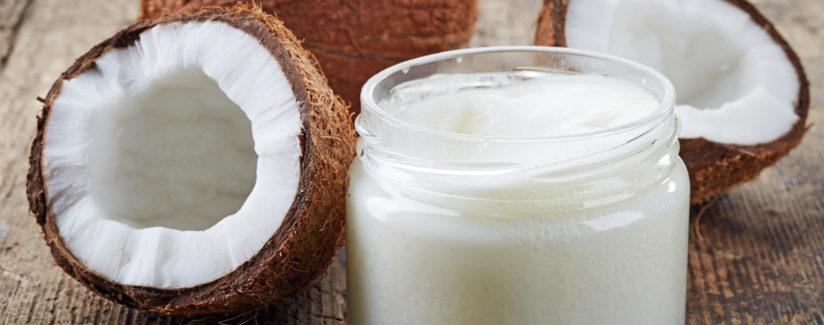
Coconut Oil Gets a Closer Look
Coconut oil has become a staple in both the health and beauty worlds as a favorite for many uses. On June 15, 2017, the American Heart Association (AHA) released a Presidential Advisory (which means the AHA president identified this topic as very important) covering “Dietary Fats and Cardiovascular Disease.”
The American Heart Association stated, “Because coconut oil increases LDL cholesterol, a cause of CVD [cardiovascular disease], and has no known offsetting favorable effects, we advise against the use of coconut oil.”
The news came as a surprise to many who considered coconut oil to be a healthy option. To get some more information about coconut oil and saturated fats we contacted registered dietitian Connie Diekman.
The American Heart Association released a Presidential Advisory that stated coconut oil is ‘very high in saturated fats and increases LDL cholesterol.’ What does this mean?
Connie Diekman: “Multiple decades of research studies have demonstrated that saturated fats increase the LDL cholesterol. Increased LDL cholesterol is known to be connected with increased risk of heart disease. Coconut oil is more than 80% saturated fat. All fats are made up of fatty acids and while some of the fatty acids that make up coconut oil do not seem to increase the LDL cholesterol as much as other fatty acids found in the oil, the fact that all occur in the oil – so you can’t consume the less harmful ones without the more harmful – means that consuming coconut oil is not advised for the prevention of heart disease.”
How did coconut oil come to be considered healthy and a boost for losing weight?
Connie Diekman: “Coconut oil benefited from three things.
- The current push to consume ‘natural’ foods.
- A few small studies that have looked at the individual fatty acids in coconut oil that do not seem to increase LDL cholesterol.
- Coconut oil does boost satiety so when trying to lose weight it can help people consume fewer calories overall.
“Heart healthy liquid oils can also boost satiety (the feeling of being ‘full’) because they add flavor to dishes but their liquid consistency limits how much they impact satiety in the mouth when they are consumed.”
Are there any uses where coconut oil would be a good option?
Connie Diekman: “It works great on your skin or hair.”
What are good alternatives for coconut oil?
Connie Diekman: “Current evidence continues to support what has been known for decades, polyunsaturated fats – corn oil, sunflower oil or walnuts, flax seeds and fatty fish – should be used in place of saturated fats to achieve heart health benefits. Monounsaturated fats – olive oil, canola oil, avocados – also are beneficial when used in place of saturated fats but they do not provide as much of a reduction in heart disease risk as do polyunsaturated fats.”
While coconut oil has its uses and may be considered a healthy alternative by some, the research is important to keep in mind when considering the best options for your diet.


























